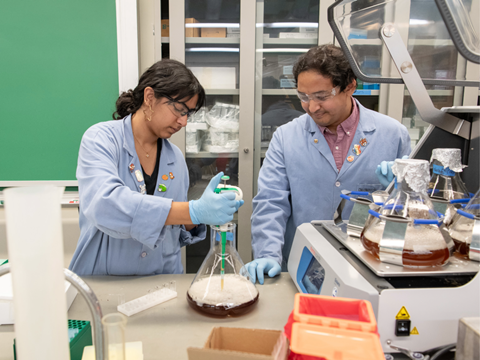
Reborn Materials, a specialist in enzyme-enhanced biodegradable plastics, has acquired AI and data analytics firm B2En Co. to develop an advanced lifecycle analysis platform with precision AI-based tracking and ESG data verification.
The platform is set to help users acquire verifiable ESG data on a global scale and measure a product’s biodegradation efficiency – features hoped to help tackle plastic pollution worldwide.
The investment agreement will see Reborn Material Holdings and three additional investors acquire a combined stake of 30.20% – equating to 13,844,719 shares – from existing shareholders like EXTWINS Fund No. 1. These are valued at approximately KRW 19.9 billion, which translates to around $15.7 million USD or €12,322,935.70.
Reborn Material Holdings now holds 6,525,533 shares (12.84%), which reportedly makes it the largest single shareholder in B2En.
“The fundamental problem with plastic waste management has historically been systemic rather than material-focused,” says Reborn Materials COO Jason Kang. “Leveraging B2En’s AI analytics allows us to transparently measure biodegradation efficiency and deliver verifiable ESG data.”
In another development, Reborn Materials has entered a strategic academic collaboration with Occidental College to jointly develop ‘next-generation’ enzyme technologies and sustainability-minded plastic solutions. The research teams will be led by Occidental’s Professor Vikram Shende and Dr. Samantha Kelly from Reborn Materials’ enzyme engineering division.
“This collaboration with Occidental College represents more than academic research,” Kang continues, “it signifies a new, practical model for solving environmental challenges through industry-academic partnerships. We expect this to become a benchmark example of sustainability-driven innovation.”
Both strategic partnerships are expected to help Reborn Materials pursue international ESG market opportunities, with the company hoping to establish new standards for transparency and sustainability-minded conduct across the global plastics industry.
The news comes as Unilever, Amcor, and Asahi were revealed among the first companies to trial Greyparrot’s ‘world-first’ AI waste intelligence platform, designed to provide product-level recyclable waste data and addresses knowledge gaps. Tracking packaging performance by brand, material, product type, and region, it follows packaging through the waste system and records which units are sorted, recycled, or lost.
Meanwhile, Antares Vision Group and Oròbix have unveiled an AI-driven visual inspection platform, intended to meet growing demand for faster, more accurate and adaptable inspection processes. It is designed to identify chromatic impurities, glass fragments, cosmetic defects or foreign bodies, among other anomolies, while preventing false rejects and increasing overall production quality.
If you liked this story, you might also enjoy:
The ultimate guide to the Packaging and Packaging Waste Regulation in 2025
How are the top brands progressing on packaging sustainability?
Everything you need to know about global packaging sustainability regulation in 2025
The key to increasing the use of reusable packaging in supermarkets














No comments yet